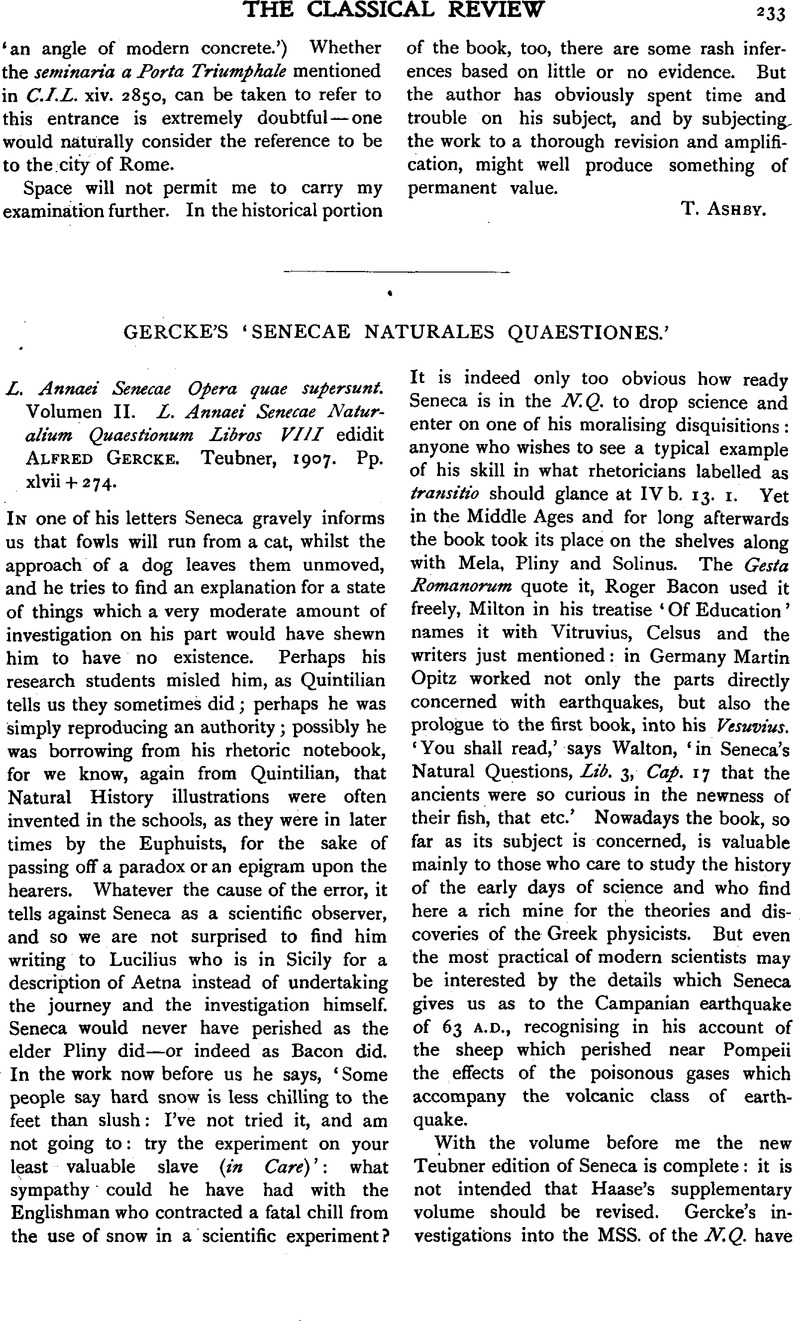No CrossRef data available.
Article contents
Gercke's ‘Senecae Naturales Quaestiones.’ - L. Annaei Senecae Opera quae supersunt. Volumen II. L. Annaei Senecae Naturalium Quaestionum Libros VIII edidit Alfred Gercke. Teubner, 1907. Pp. xlvii + 274.
Published online by Cambridge University Press: 27 October 2009
Abstract

- Type
- Reviews
- Information
- Copyright
- Copyright © The Classical Association 1909
References
page 234 note 1 These MSS. vary also as to their numeration: most, however, recognise a total of eight books, IV b being numbered I, whilst V–VII = II–IV, I–III =V–VII, and IV a becomes VIII. Roger Bacon used a MS. of this type, for he ascribes passages, e.g. from our VI and VII to the third and fourth books, whilst the Nile book is with him the eighth.
page 234 note 2 I must take this opportunity of protesting against the view, held not only by G., but also by Diels and probably others, that the prologue to III is the preface to the whole work. Of course such a view is very useful for G.'s theory as to the order of composition, but the words on which the view is based, ‘non praeterit me quam magnarum rerum fundamenta ponam senex,’ are in no way incompatible with the view that several books (six, if Rehm is right), had already been written. These prologues are independent pieces of writing, and the sentiment ‘It is a bold thing to begin writing on Natural Philosophy late in life’ might stand in the prologue of any of the books of N.Q. Indeed, if we are to base the order of composition on the prologues, Book II would have a very good claim to come first, as its prologue discusses the sub-divisions of the subject-matter of the whole work. Gercke is clear-sighted enough here, and his remarks on p. viii ‘neque in ea re offendimus quod talis scriptor dispositionem doctrinae medio inseruit operi (Hook II comes fourth in his order), sine dubio … artificiis dialogorum ductus’ apply, mutatis mutandis, to the prologue to Book III.
page 234 note 3 The passages of these writers bearing on this point are given in the text on pp. 157 sqq.
page 235 note 1 See on this Rehm, I.c., p. 393.




